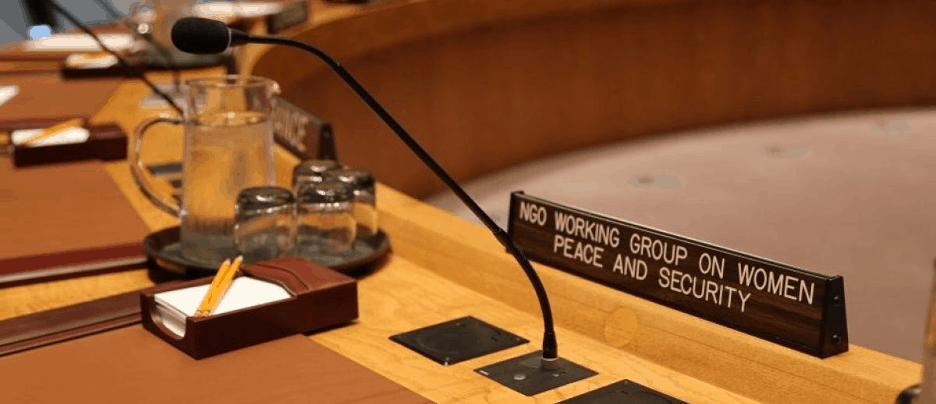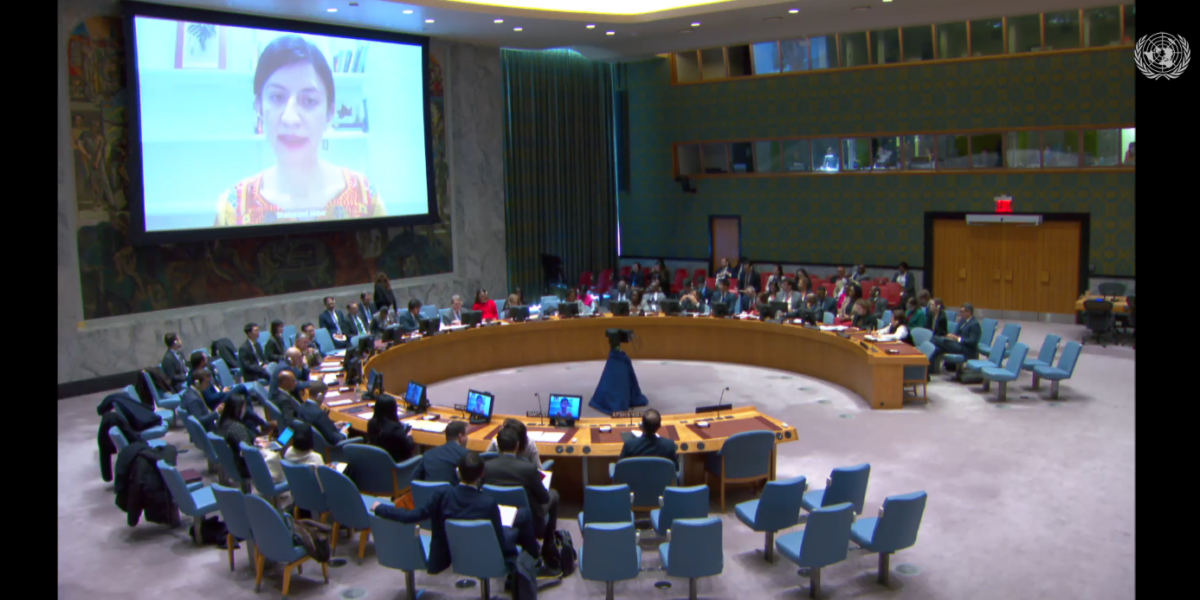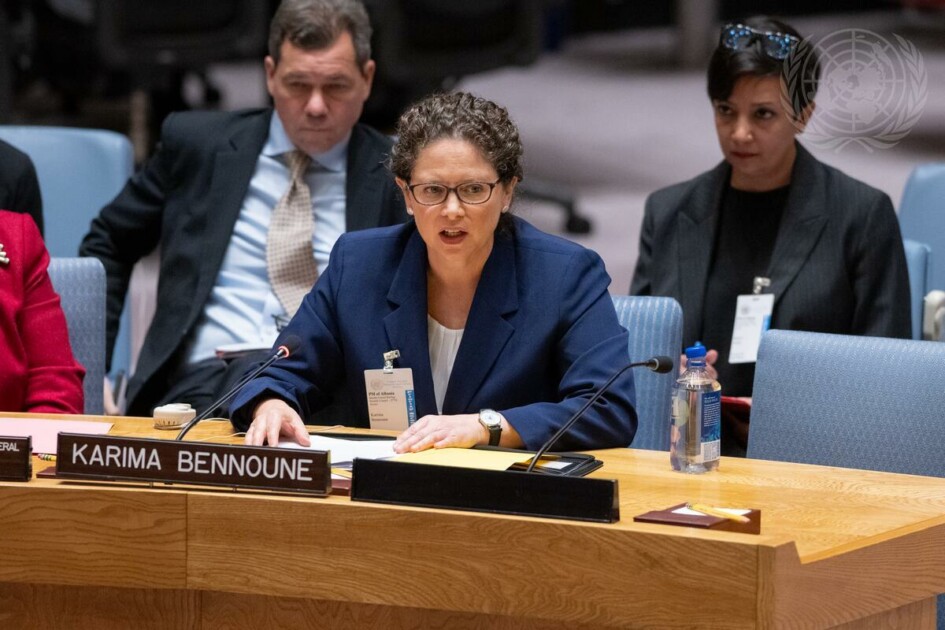Afghanistan
Afghanistan
Afghanistan has been engulfed in violent armed conflict since the fall of the Taliban regime in 2001, and efforts to build sustainable peace while preventing the re-establishment of extremist rule depend on the inclusion of women.
Living in the most dangerous place in the world to be a woman, as the Thomas Reuters Foundation revealed in 2011, Afghani women have emerged as leaders in the peace process— advocating constantly for more inclusive government, and inspiring marginalized groups nationwide to demand a place in the political system. Despite the important role that Afghani women play in bringing about social change in Afghanistan, many barriers to their involvement still exist.
Based on the work of NGOWG members and their partners, the NGOWG advocates for eliminating these barriers by encouraging UNAMA to support the Afghan government in fully implementing the National Action Plan on Women, Peace and Security (NAP), and ensuring women’s full and equal participation in regularly held elections.
Current and Past Recommendations to the UN Security Council (Monthly Action Points)
Security Council discussions regarding the Secretary-General’s report and mandate renewal of the UN Assistance Mission in Afghanistan (UNAMA) in March must identify challenges and remedies regarding national and international efforts to advance women’s integration into the political, economic, and social life of Afghanistan. Given preparations for international forces to disengage militarily by 2014, all relevant international actors must ensure women’s rights are not sacrificed in the preparations for this withdrawal, and should ensure that women’s security and ability to move freely throughout the country are indicators of the transition’s success. The Council is therefore urged to:
- Invite an Afghan woman leader to speak at the Council’s March debate on Afghanistan, as per SCR 1325 (OP1);
- Ensure consultation with women, particularly rural women and women outside of Kabul, is at the core of all national and international peace and reconciliation efforts;
- Request that the Afghan authorities, the UN, and member states engaged in Afghanistan account for measures taken in Afghanistan to include women and women’s priorities in high-level discussions on peace, reintegration and reconciliation processes. Any Afghan and international agreements with the Taleban and other insurgent groups must conform with Afghanistan’s obligations under international humanitarian and human rights law;
- Ensure political agreements between the Afghan government and insurgent groups include verifiable benchmarks to evaluate the parties’ conformity with human rights obligations, and that all benchmarks/reporting/monitoring efforts have explicit and robust gender components and disaggregated data;
- Strengthen responses to violence against women and women’s rights defenders;
- Ensure justice and security sector reform efforts respect women’s rights equally under the law, including in current recourse to “informal” legal processes;
- Reiterate the importance of full cooperation with the AIHRC by all relevant actors, and call on the Afghan authorities not to restrict the independence of the AIHRC;
- Support additional UN capacity to address humanitarian needs, including an increase in UNHCR and OCHA protection and humanitarian affairs officers in regional offices; and
- Emphasize UNAMA’s zero-tolerance for sexual exploitation and abuse.
Security Council discussions regarding the Secretary-General’s report and mandate renewal of the UN Assistance Mission in Afghanistan (UNAMA) in March must identify challenges and remedies regarding national and international efforts to advance women’s integration into the political, economic, and social life of Afghanistan. Given preparations for international forces to disengage militarily by 2014, all relevant international actors must ensure women’s rights are not sacrificed in the preparations for this withdrawal, and should ensure that women’s security and ability to move freely throughout the country are indicators of the transition’s success. The Council is therefore urged to:
- Invite an Afghan woman leader to speak at the Council’s March debate on Afghanistan, as per SCR 1325 (OP1);
- Ensure consultation with women, particularly rural women and women outside of Kabul, is at the core of all national and international peace and reconciliation efforts;
- Request that the Afghan authorities, the UN, and member states engaged in Afghanistan account for measures taken in Afghanistan to include women and women’s priorities in high-level discussions on peace, reintegration and reconciliation processes. Any Afghan and international agreements with the Taleban and other insurgent groups must conform with Afghanistan’s obligations under international humanitarian and human rights law;
- Ensure political agreements between the Afghan government and insurgent groups include verifiable benchmarks to evaluate the parties’ conformity with human rights obligations, and that all benchmarks/reporting/monitoring efforts have explicit and robust gender components and disaggregated data;
- Strengthen responses to violence against women and women’s rights defenders;
- Ensure justice and security sector reform efforts respect women’s rights equally under the law, including in current recourse to “informal” legal processes;
- Reiterate the importance of full cooperation with the AIHRC by all relevant actors, and call on the Afghan authorities not to restrict the independence of the AIHRC;
- Support additional UN capacity to address humanitarian needs, including an increase in UNHCR and OCHA protection and humanitarian affairs officers in regional offices; and
- Emphasize UNAMA’s zero-tolerance for sexual exploitation and abuse.
Relevant Resources










